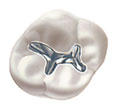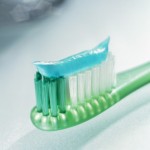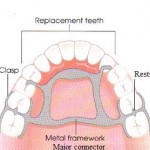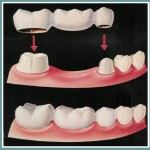Amalgam was first introduced in United States during 1833. It is then used widely as dental filling material over the years because of its strength, durability and low cost (especially for posterior teeth). It is now discontinued or banned in certain countries such as Norway, Sweden, Denmark because of its known biological effects on human body. Amalgam is made of metals such as Silver, Tin, Copper, Zinc and Mercury. 50% of amalgam is made of mercury and they are then mixed to form a hard material which has silvery grey appearance through a process which is known as amalgamation. Patients are exposed to high dose of mercury during the process of placing and removal of amalgam restoration. Continue reading
Author Archives: SH
About teeth grinding

Is bruxism considered as a disease?
No, it is not a disease. Teeth grinding or bruxism is a type of parafunctional habit. Parafunctional habit is the habitual exercise of a body part in a way that is other than the most common use of that body part. Continue reading
Random Facts About Toothpaste
1)Â Â Â Â Â Before we discuss about actions of toothpaste, let us venture into history to find out who invented toothpaste.
Toothpaste has come a long way over the years. Egyptians first used a paste to clean their teeth, which took place around 500 BC. Flowers, animal bones, oyster shells are the first few ingredients used as toothpaste during that time. Continue reading
Parts of Removable Partial Dentures
Are you a long time denture wearer?
Have you ever wonder what are those components present on your partial dentures?
If yes is the answer to above question, let me explain to you briefly about parts of removable partial denture. Continue reading
Questions and Answers :Flexible Dentures
What are flexible dentures?
Normal acrylic dentures are hard, rigid and can fracture when they are dropped accidentally. Flexible dentures are introduced by Valplast Company (during 1950s) and as their name suggest, they are flexible in nature. Continue reading
Dental Partial Vs. Bridges
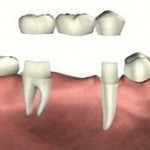 Before we discuss about the advantages between dental partial dentures and dental bridges let me explain briefly about them.
Before we discuss about the advantages between dental partial dentures and dental bridges let me explain briefly about them.
Removable partial denture is a prosthesis to replace missing teeth which can be easily removed and placed in the mouth by the patient.
Fixed partial denture, in other words dental bridge is used to replace missing tooth which is support by adjacent teeth or implant and cannot be removed  by the patient.
Each of them has its own advantages and disadvantages and normally your dental surgeon will choose the best option to replace your missing teeth based on your oral condition. Continue reading
Alternatives to Partial Dentures
Before we discuss about the treatment options available to replace missing teeth, let me explain to you about the reasons why we need to replace them. Continue reading
What Materials Are Dentures Made From?
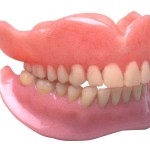 Any denture wearers would like their dentures to be stable, retentive and esthetic. Thus  ,choosing a good material to construct denture will ensure a well fitting and natural looking denture. Continue reading
Any denture wearers would like their dentures to be stable, retentive and esthetic. Thus  ,choosing a good material to construct denture will ensure a well fitting and natural looking denture. Continue reading
Problems With Partial Dentures
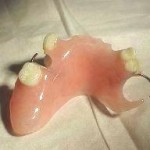 There are some common problems that can occur from wearing removable partial denture.
There are some common problems that can occur from wearing removable partial denture.
PLAQUE ACCUMULATION
Plaque accumulation is the most seen effect as plaque is accumulated more at the denture bearing areas and around teeth where components are placed. This can be avoided by meticulous maintenance of oral hygiene and proper cleaning of denture. Continue reading
Dental Tools Used in a Root Canal
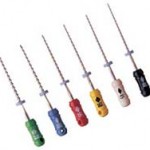 The following are some brief explanations regarding the instruments used during root canal treatment.
The following are some brief explanations regarding the instruments used during root canal treatment.
Basic examination kit that is used for examination and diagnosis consists of
(1)Mouth mirror – to provide visualization and facilitate examination.
(2)Periodontal probe –
(3) Sharp explorer – to locate the root canal orifice.
(4)Tweezers/ Cotton forceps Continue reading
